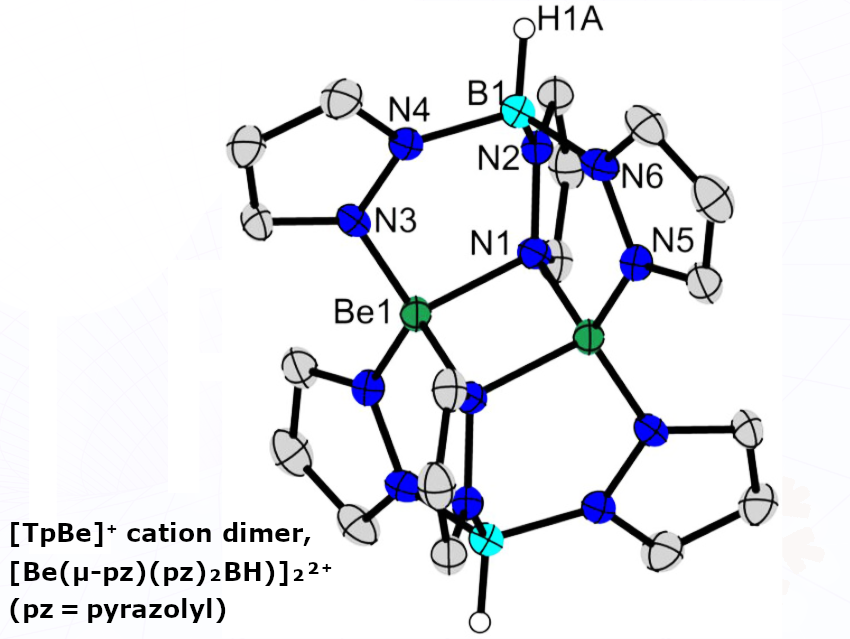Magnus R. Buchner, Philipps-Universität Marburg, Germany, and his coauthors have synthesized and characterized monocationic tris(pyrazolyl)borate beryllium phosphine complexes. These complexes undergo facile phosphine oxidation, with the resulting phosphine oxides acting as stronger ligands than the parent phosphines, as supported by experimental and computational data.
What did you do?
We prepared a series of cationic beryllium complexes, which contain the tris(pyrazolyl)borate (Tp) ligand and a phosphine: [TpBe(PR₃)]⁺ cations with PR₃ = PMe₃, PEt₃, PPh₃, PCy₃, PMe₂Ph, PMePh₂.
Variation of the steric and electronic properties of the phosphine provided detailed insights into bonding and reactivity.
Why are you interested in this?
To better understand the beryllium-phosphorus bond and the coordination chemistry of beryllium in general.
What is new and cool about it?
That the [TpBe]⁺-fragment exhibits a Lewis acidity comparable to that of B(C₆F₅)₃, which is one of the most commonly applied Lewis acids.
What are your key findings?
Our compounds show Lewis acid-base chemistry and activate molecular hydrogen, carbon dioxide, and an array of other small molecules.
What is the longer-term vision for your research?
To use our precise control of sterics and electronics in these beryllium complexes to catalytically functionalize CO₂.
What part of your work was the most challenging?
The extreme sensitivity of the compounds, which even react with traces of oxygen in the glove box. Therefore, the complexes had to be analyzed very fast as soon as they were brought into solution.
Thank you very much for sharing these insights.
The paper they talked about:
- Cationic Phosphino Beryllium Scorpionates and their Reactivity as Lewis Acid–Base Pairs,
Chantsalmaa Berthold, Deniz F. Bekiş, Jan Moritz, Gilles Stebens, Burkhard Butschke, Magnus R. Buchner,
ChemistryEurope 2025.
https://doi.org/10.1002/ceur.202500142
Magnus R. Buchner is a Group Leader in the Department of Chemistry at Philipps-Universität Marburg in Germany.
Also of Interest

Just published articles from ChemistryEurope, the flagship journal of Chemistry Europe




